Integrating Technology in coaching about sales for Enhanced Team Productivity
In today’s dynamic business landscape, coaching about sales plays a pivotal role in driving team productivity and achieving sales targets. However, traditional coaching methods often fall short in addressing the evolving needs of modern sales teams. By integrating technology into coaching about sales processes, organisations can unlock new opportunities for efficiency, effectiveness, and success. In this comprehensive guide, we’ll explore how integrating technology in coaching about sales can enhance team productivity and drive tangible results.
Real-Time Performance Tracking
One of the key benefits of integrating technology into coaching about sales is the ability to track performance metrics in real-time. With the help of sales enablement platforms, CRM systems, and analytics tools, sales managers can gain insights into team performance, identify areas for improvement, and provide timely feedback to individual team members. Real-time performance tracking allows sales coaches to address issues proactively, recognise top performers, and tailor coaching strategies based on data-driven insights.
Personalised Learning Paths
Technology-enabled coaching about sales facilitates personalised learning paths for each sales team member based on their unique strengths, weaknesses, and goals. AI-powered learning platforms can analyse individual performance data, assess skill gaps, and recommend targeted training modules or resources to address specific needs. By offering personalised coaching and development opportunities, organisations can empower sales reps to enhance their skills, overcome challenges, and achieve peak performance.
Interactive Training Modules
Traditional sales training sessions often involve lengthy presentations or lectures that may not fully engage participants or cater to diverse learning styles. Integrating technology allows sales coaches to create interactive training modules that combine multimedia elements, simulations, quizzes, and gamification to make learning more engaging and effective. Interactive training modules provide sales reps with hands-on experience, immediate feedback, and opportunities for active participation, leading to higher retention rates and improved learning outcomes.
Virtual Role-Playing Exercises
Role-playing exercises are a valuable component of coaching about sales that allow reps to practice their sales techniques in a simulated environment. With virtual role-playing platforms and video conferencing tools, sales coaches can conduct realistic role-playing sessions remotely, enabling reps to refine their communication skills, objection handling techniques, and sales pitches from anywhere. Virtual role-playing exercises provide a low-pressure environment for reps to experiment with different approaches, receive constructive feedback, and build confidence in their abilities.
AI-Powered Coaching Assistants
Artificial intelligence (AI) technologies are revolutionising coaching about sales by providing virtual coaching assistants that support sales managers and reps throughout the coaching process. AI-powered coaching assistants can analyse sales calls, emails, and interactions to identify patterns, trends, and areas for improvement. They can also generate personalised coaching recommendations, reminders, and action plans based on individual performance data. By leveraging AI-powered coaching assistants, sales managers can scale their coaching efforts, optimise their time, and deliver more targeted and effective coaching interventions.
Mobile Learning Platforms
In today’s mobile-first world, sales reps often prefer learning on-the-go, anytime, and anywhere. Mobile learning platforms enable sales teams to access training materials, coaching resources, and performance insights from their smartphones or tablets, allowing for greater flexibility and convenience. Sales coaches can leverage mobile learning platforms to deliver bite-sized training content, microlearning modules, and on-demand coaching sessions that align with the busy schedules of sales reps. Mobile learning platforms empower reps to take ownership of their learning journey and stay engaged with ongoing coaching initiatives.
Collaborative Coaching Tools
Effective coaching about sales is a collaborative effort that involves active participation from both coaches and reps. Collaborative coaching tools, such as shared document repositories, communication platforms, and virtual whiteboards, facilitate collaboration and knowledge sharing among team members. Sales coaches can use collaborative coaching tools to share best practices, provide feedback in real time, and facilitate peer-to-peer learning experiences. By fostering a culture of collaboration and continuous improvement, organisations can create a supportive environment where sales teams thrive and succeed together.
Video-Based Feedback and Coaching
Video has emerged as a powerful tool for providing feedback, coaching, and performance evaluation in coaching about sales. With video-based coaching platforms, sales reps can record sales presentations, pitches, or role-plays and share them with their coaches for review and feedback. Coaches can provide detailed feedback, annotations, and coaching tips directly within the video interface, enhancing the effectiveness of coaching interventions. Video-based coaching allows for more nuanced feedback, visual demonstrations, and personalised guidance, leading to greater skill development and performance improvement.
Data-Driven Coaching Strategies
Integrating technology into sales coaching enables organisations to adopt data-driven coaching strategies that are based on empirical evidence and insights. By leveraging sales performance data, customer feedback, and predictive analytics, sales coaches can identify trends, patterns, and opportunities for improvement at both individual and team levels. Data-driven coaching strategies enable coaches to make informed decisions, set realistic goals, and measure the impact of coaching interventions on key performance metrics. By aligning coaching efforts with business objectives, organisations can drive continuous improvement and achieve measurable results.
Continuous Feedback Loops
Effective coaching about sales is not a one-time event but rather an ongoing process that requires regular feedback and iteration. Technology-enabled coaching platforms facilitate continuous feedback loops between sales managers and reps, ensuring that coaching interventions are timely, relevant, and impactful. Sales coaches can use feedback mechanisms such as surveys, quizzes, and performance evaluations to gather insights from reps and adjust their coaching strategies accordingly. By fostering a culture of continuous feedback and improvement, organisations can create a dynamic and responsive coaching environment that drives sustained growth and success.
Conclusion
Integrating technology into coaching about sales has the potential to transform traditional coaching practices and unlock new opportunities for enhanced team productivity and performance. From real-time performance tracking and personalised learning paths to virtual role-playing exercises and AI-powered coaching assistants, technology offers a wide range of tools and capabilities to support sales coaches and empower sales reps. By embracing technology-enabled coaching solutions from Dynamo Selling, organisations can optimise their coaching efforts, develop the skills and capabilities of their sales teams, and drive measurable results in today’s competitive business landscape.

